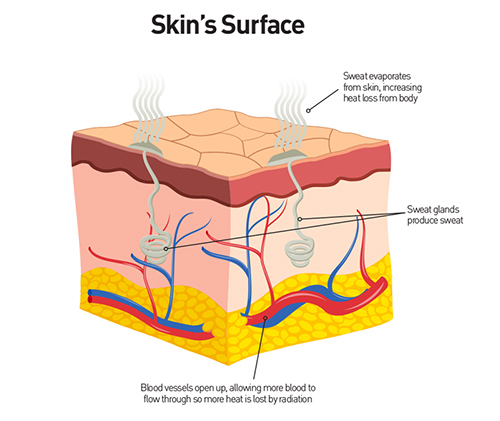Our Doctors
Meet all the doctors from Cleveland Clinic Abu Dhabi.
View Doctors
Keep cool to prevent heat-related illnesses such as exhaustion and heatstroke

Hot and humid summers can pose risks. Know how to recognise the signs of heat illness and take preventive action to reduce your risk.
To understand how you can prevent heat-related illnesses, it’s important to first understand how your body regulates its temperature. The human body temperature is normally 37°C regardless of the environmental temperature, as it is regulated by your body’s natural feedback system. When the outside temperatures rise, there are various ways that your body tries to cool itself to maintain a normal temperature.
When your temperature rises, the brain sends a signal to your blood vessels, sweat glands and muscles to assist in lowering the temperature. Your blood vessels begin to dilate, enabling blood to flow near the surface and allowing your body to reduce internal temperature by radiating heat loss outwardly. You also start to sweat onto the skin; the water evaporates removing heat from the skin and creating a cooling effect.
Heat-related illnesses include itchy rashes, muscle cramps, swelling, rapid breathing, fainting, heat exhaustion, and heatstroke, a medical emergency that occurs when the body cannot regulate its temperature.
Heatstroke is a serious condition. Symptoms include high temperature, altered behaviour such as feeling disoriented, lack of sweating, nausea, flushed skin, rapid breathing, fast heart rate and headache.
If you think that you or someone else may be experiencing heatstroke, take immediate action by contacting emergency services or visiting your local emergency department. Find a cool place to rest and rehydrate, and lower body temperature by any means possible - use cold water, air-conditioning or fanning, ice packs, or cold wet towels on the head, neck and armpits.
Travelling this summer? Our Travel Clinic offers travel safety information, pre-travel counseling, and advise on the immunizations you may need before heading abroad.